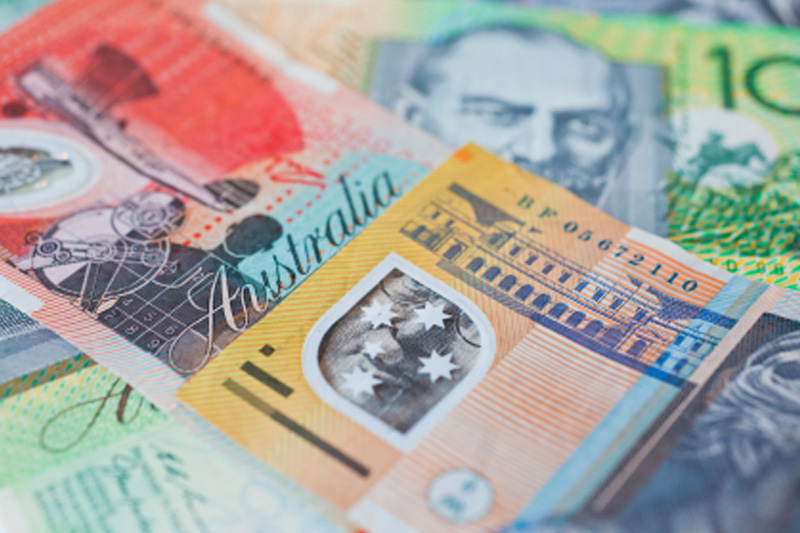Investing.com - The Australian dollar eased on Monday as investors focused on mixed data from China on retil sales and industrial output and braced for this week's Federal Reserve review of interest rates.
AUD/USD traded at 0/7085, down 0.08%, while USD/JPY changed hands at 120.55, down 0.05%.
In China at the weekend, data showed fixed asset investment rose 10.9%, just below the 11% seen, while industrial production gained 6.1%, below the 6.4% expected and retail sales rose 10.8%, above the 10.5% seen.
The U.S. dollar index, which measures the greenback’s strength against a trade-weighted basket of six major currencies, was quoted down 0.16% to 95.23.
In the week ahead investors will be focusing on Thursday’s Fed policy announcement, but central bank meetings in Switzerland and Japan will also be closely watched.
On Monday, Switzerland is to release data on producer price inflation and retail sales.
Last week, the dollar was lower against the euro for the sixth straight session on Friday as investors remained cautious ahead of the Federal Reserve’s critical policy announcement next week.
Sentiment on the dollar has been hit by concerns that mixed U.S. economic reports and recent volatility in global financial markets will prompt the U.S. central bank to refrain from hiking interest rates on Thursday.
An increase in interest rates would boost the greenback by making it more attractive to yield-seeking investors.
A report on Friday showing that consumer sentiment fell sharply in August while producer prices were flat added to the view that the U.S. central bank would hold off on hiking short-term interest rates.
The preliminary reading of the University of Michigan’s consumer sentiment index fell to 85.7 from 91.9 in July, compared to forecasts of 91.2.
Separately, the Labor Department reported that the producer price index was flat last month after a 0.2% increase in July.
Recent U.S. data has indicated that inflation is still weak, due to low oil prices and the stronger dollar, even as the labor market staged a strong recovery and the economy posted five consecutive quarters of growth.
Fed Chair Janet Yellen has said that an interest rate increase is data dependent but has also indicated that she expects to begin raising rates before the end of the year.
